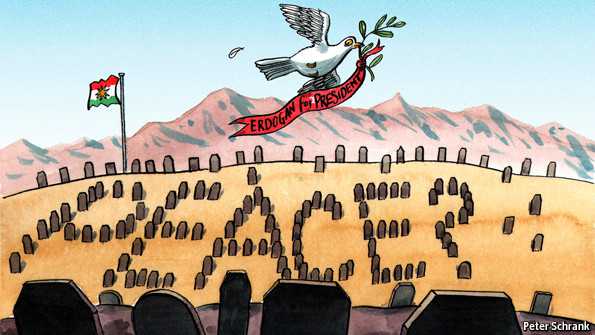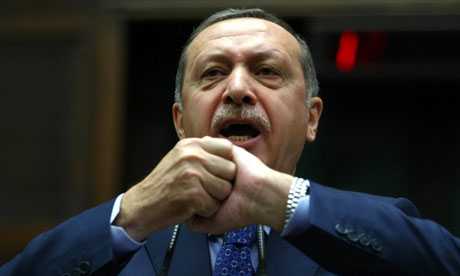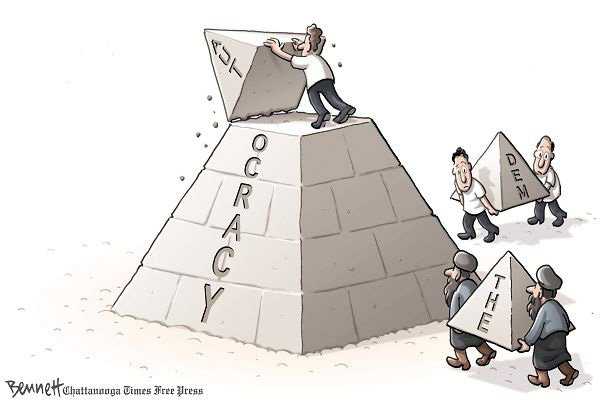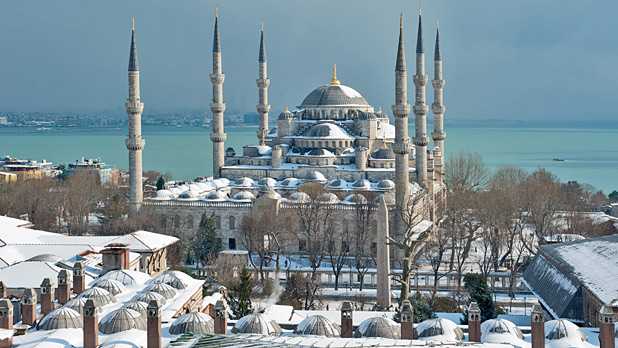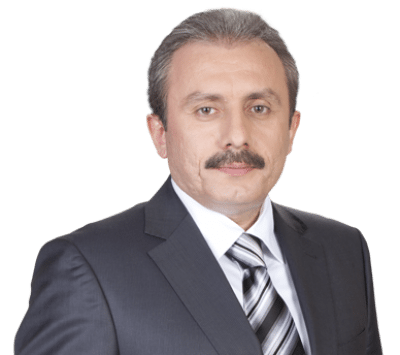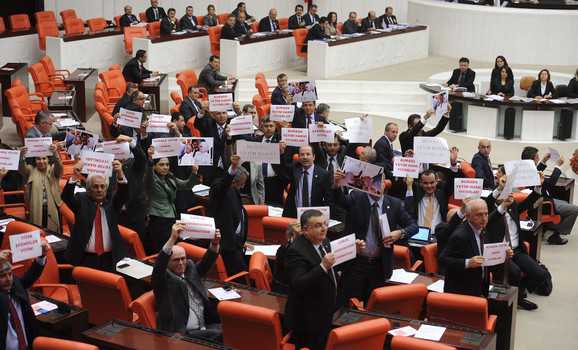
To Constitutional Referendum
Will Turkey go to a referendum over a new draft constitution? If you read into the repetitious signals from the ruling Justice and Development Party (AKP) and lend an ear to the loudness of its voices, the answer is a loud and clear yes.
About This Article
|
Summary : Yavuz Baydar asks whether a draft referendum on a new constitution is progress for Turkish democracy.
Author: Yavuz Baydar |
It was once more expressed by the Prime Minister Recep Tayyip Erdogan, at a behind-closed-doors party meeting with AKP deputies representing the Aegean (Western Anatolian) region, that the time is getting ripe for a referendum on adopting a constitution, and that it is inevitable.
For those who doubt that such closure is in sight, consider the following: Facing three key elections in next two years, Erdogan feels he has a historic chance for himself and his party to extend their rule over Turkey — with a social contract defining a “new order.”
How democratic the “new order” will be is anybody’s guess. The drafting process had started with a parliamentary reconciliation commission set up of four parties represented in the Grand Assembly; each party got three members on the commission.
Given the commission’s rigid modus operandi and apparent initial disagreements, those who had not given it a chance for achieving tangible progress proved to be right: The commission succeeded only in agreeing on about a third of the articles by the Dec. 31, 2012 deadline after a year’s work.
Disagreements on the fundamental issues of the new constitution, such as its preamble, definition of a national identity, of language, of designing the executive power model, of checks and balances and decentralization were so wide that not even an extension of its mandate up to now has been helpful.
The 12-member commission now seems stuck on 40 key articles, whereas it has found common ground on around 110. At the most, it may continue to work a week or two more, but it has lost its appetite for delivering the goods.
But there are powerful dynamics elsewhere. The peace talks with the PKK triggered new hopes on the social level and have been a game-changer in Turkish politics.
Turkey’s attempts to shake off the murky heritage of a restrictive, authoritarian, obstructive constitutional order — a product of a military coup in September 1980 — have been floundering for a decade under the AKP because of an immense power struggle between backers of the former secularist regime and reformist actors as well as the incessant bloody clashes between the PKK and the army.
The struggle has been harsh, displaying the mass hypnosis of a nation before its history — filled with denials and unresolved crimes of humanity. It also has shown the unpreparedness of some of its political actors in the opposition, and the professional bankruptcy of its judiciary. A prepared opposition and a professional judiciary are crucial elements for carrying out the transition.
If any point seems clear, it is that the approach to the Kurdish issue could define the composition and pace of the final phase of Turkey’s normalization.
Turkey’s Kurds, more than 15 million of the country’s 74 million people, have since 2007 been dividing their votes almost equally between the ruling AKP and the Peace and Democracy Party (BDP) — the political wing of the PKK. They have demonstrated enough oppositional resilience to encourage Erdogan into thinking that a new constitution is possible only if it their demands on rights and freedoms are met.
The prospect is now strong enough to boost Erdoğan’s determination that a political closure is realistically possible.
There lies the paradox between the deadlock on the parliamentary commission and new momentum giving shape to various exit scenarios.
Erdogan has repeatedly spoken in public about the process of adopting a constitution. He has talked about three scenarios:
Plan A would be an agreement between all four parties, Plan B would hopefully unite the AKP, BDP and the main-opposition Republican People’s Party (CHP). Plan C would mean a drafting a text that the AKP hopes would get the outside support of the BDP, given that it meets Kurds’ basic demands.
Plan A is already out. The Nationalist Movement Party (MHP), on the extreme right, has remained consistently outside of the ‘quartet,’ refusing even to discuss the Kurdish demands.
Plan B has been based on the assumption that the CHP, which as the main opposition is the staunch defender of the values of Kemal Ataturk, founder of the republic (“Kemalism”), with the emphasis on keeping authoritarian secularism, would cease its policies of constant blocking and filibustering, and shift to a constructive “bargaining mode.”
But despite the notable progress on peace talks with Abdullah Ocalan (who has now brought the PKK to the verge of pulling its armed units out of Turkish soil) and with domestic popular support for ending the conflict and adopting a new constitution, the CHP plunged instead deeper into an internal crisis.
Its leader, Kemal Kilicdaroglu, demonstrated remarkable flip-flopping over lending support to peace talks, and very mixed signals were received from the party’s opposing — reformist and conservative — flanks over the draft constitution.
In a nutshell, it has become clear that the more successful the peace process is, the more internally ripped-apart the CHP will be.
It is now facing a growing existential battle, in terms of identity and its political objectives. It is so strained that even a defection of sorts of some 10 or even more deputies in parliament is now likely.
This leaves the AKP and the BDP with Plan C — or its derivatives.
Here goes a possible scenario: The AKP needs at least 331 of the 550 votes in parliament to take its draft — preferably “agreed” to by the BDP — to a referendum. The more smoothly peace talks go, the closer this prospect will be. The AKP has 325 deputies; the BDP has 30. If Erdogan can cleverly sell Plan C to his party and to the public — without scaring away the Turkish nationalist segment — he would accumulate enough votes.
Once he does that, the rest is easier: Opinion polls indicate that the overall yes votes in a referendum would be between 55% and 65%.
But, the question in the minds of skeptics is obvious. Will Erdogan find a way to bypass Kurdish demands, dilute them and end up with a presidential model, which will consolidate even more powers in his person?
Victory for him should not to be taken for granted. It is obvious that he will push the issue to its very limits, but he is bound to encounter tough bargaining with the BDP and, surprising though it may be, a considerable number of deputies in his own party may also hesitate. (Let us keep in mind that the vote in parliament will have to be a closed one and around 70 AKP deputies will not be able to run in the next election because of AKP bylaws; that could cause some resentment.
He knows therefore that he must have other options on the table, and they may exclude a shift to an USA-type presidential model. It is likely that he may switch to a French model of presidency at the end of the day.
But what will count more than that is whether or not the draft will guarantee freedoms, rights, proper checks and balances, rule of law, enhanced self-administration, a modern secular model and transparency.
So, the curtain is raised for a battle between four parties, two against two. On one side stand the AKP and the BDP, two real grassroots parties, and on the other are the CHP and MHP, which by ideology stand closer to the state than the masses. Among them, a lot depends, as a game-changer, whether or not the CHP will choose a different, pro-reform direction.
Yavuz Baydar is a contributing writer for Al-Monitor’s Turkey Pulse. A journalist since 1979, he has been a radio reporter, news presenter, producer, TV host, foreign correspondent, debator and, in recent years, a news ombudsmen for the daily Sabah. His opinion pieces can be followed in the English-language daily Today’s Zaman.
Read more: http://www.al-monitor.com/pulse/originals/2013/04/turkey-constitution-referendum-democracy.html#ixzz2RB0lOmUf

